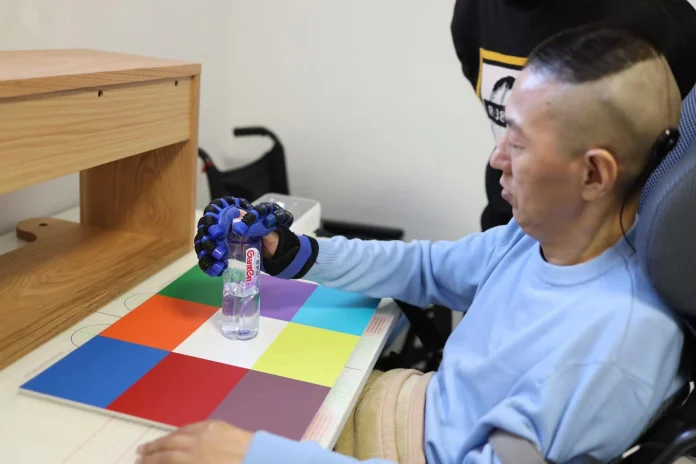Scientists at Tsinghua University in China have achieved a breakthrough in neural technology with the development of the Neural Electronic Opportunity (NEO), a wireless brain-computer interface implant. This innovative implant has demonstrated significant success in a clinical trial involving a patient with a spinal cord injury. The patient was able to control a prosthetic hand using their brain signals without causing harm to neurons.
The NEO system is notable for its compact size, smaller than two coins, and its unique placement directly into the skull without the need for batteries. Operating on wireless power and electrodes, it captures signals from the brain and transmits them to an external receiver, which can then be decoded by a computer or smartphone.
The technology, known as Brain-Computer Interface (BCI), holds promising applications for individuals with spinal cord injuries and conditions like epilepsy. The Tsinghua University team emphasizes the minimal invasiveness of their implant, highlighting that it causes little disruption to the body. Notably, their approach differs from other similar projects, such as Elon Musk’s Neuralink, as they believe their NEO system strikes a good balance between performance and invasiveness.
The initial trial with a patient suffering from a spinal cord injury yielded positive results within just three months of rehabilitation. The patient demonstrated the ability to control a prosthetic hand, and with ongoing development and rehabilitation, further improvements in hand movements and functions are expected.
The researchers plan to explore additional applications of this technology, particularly in accelerating neural growth within damaged spinal cord segments. This development signifies a significant advancement in neural interfaces, offering potential solutions for individuals with neurological conditions and spinal cord injuries.


